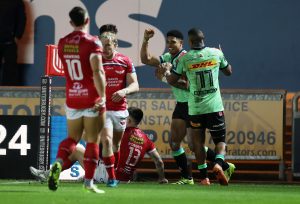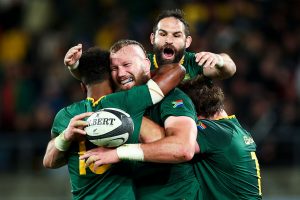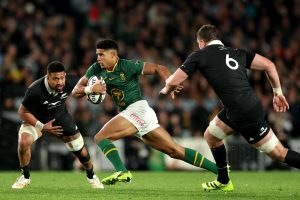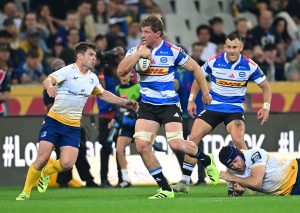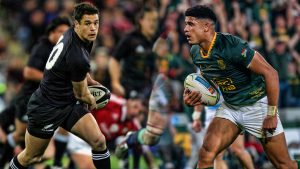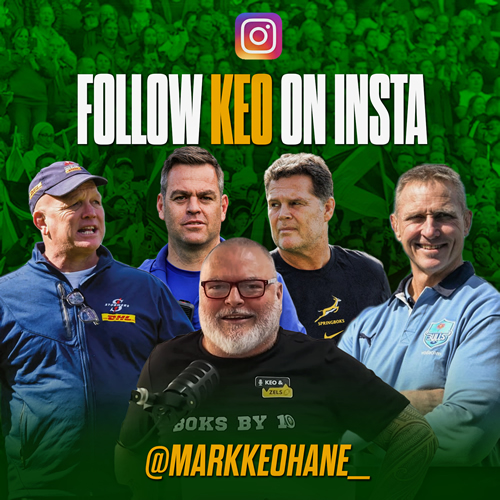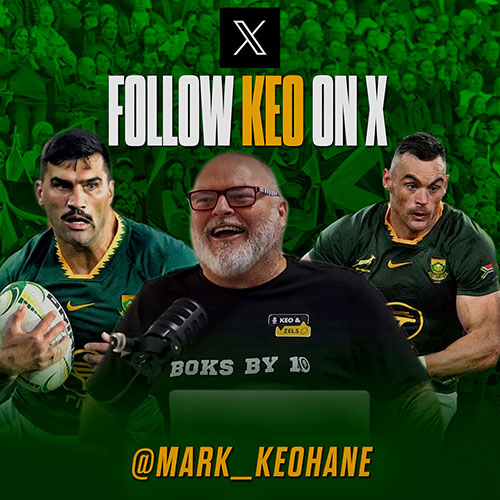“Old” is good enough
Mark Keohane, writing for IOL Sport
Good enough is old enough.
Every time a youngster has exploded on the international sporting scene, I’ve heard that said. Forget experience, forget a second-season syndrome. Good enough is old enough.
But I never hear the same enthusiasm when it comes to old is good enough, which is why I took particular pleasure from watching All Blacks legend Dan Carter turn it on in style for his childhood club Southbridge a week ago.
Carter, a two-time World Cup winner, a victorious in 99 of his 112 Tests for the All Blacks and the record holder for points scored in international rugby, is 38 years-old. A year ago, a 37 year-old Carter won the MVP in the final of the Japanese league and was voted the player of the season
Carter, having played all is rugby in New Zealand for Canterbury or the Crusaders, is currently a member of the Blues Super Rugby squad. He recently said in a media interview that he could play until he was 40 and potentially beyond 40. He said he expected some of the great players of this generation to play into their 40s because of their conditioning, their awareness in daily diets and also their ability to defy the odds of age.
Carter’s appearance for Southbridge was sporting romance at its most robust. He kicked six from seven conversions, created two tries, made some telling tackles and got up every time after being tackled, with the hits often a good few seconds after the pass.
It was a brilliant occasion, but still there those on social media who condemned Carter for apparently keeping a youngster on the bench.
‘Time to move on,’ read one comment. ‘Time for a youngster.’
Why?
Surely, good enough is old enough.
Why is there this obsession to retire older players, regardless of their quality, ability or dominance?
How many good South African sports people have been put out to pasture because the pubic demanded someone younger?
Proteas cricketer Jacques Kallis could still be playing international cricket today. He was that good.
Kallis, in his final few seasons, constantly was asked when he was going to retire. Yet, he was still the world’s best all-rounder, among the elite top order batsmen, brilliant as a fielder and still capable of bowling at 140-plus clicks.
Players and athletes, not necessarily good enough, are accepted because of youthfulness, but veterans, always good enough through a proven track record, are asked to leave the arena!
I’ve never understood why old is an ugly word in sport for so many supporters and why quality is secondary to age.
Roger Federer, statistically, the greatest male player in tennis history with 20 Grand Slam titles, is also the oldest winner of a Grand Slam at 35.
Why did so many want him to retire?
Federer’s response to the question of retirement, was also a question. Why, when he was still enjoying the game, succeeding and being competitive, should he pack it in because of age?
The sporting world would go ballistic if a 26 year-old champion called time on his career, which is what happened when Sweden’s Bjorn Borg walked away from tennis after winning Wimbledon six times.
The fans screamed for more.
Why not a 38 year-old, ranked three in the world pre lockdown and with 20 Grand Slams and the second most title wins in history?
Old enough surely is good enough.
‘I don’t think the exit needs to be that perfect, when you have done it all,’ said Federer. ‘People don’t remember what were the last matches of a John McEnroe and Stefan Edberg. Nobody knows. They remember that they won Wimbledon and that that were world No 1. I don’t think the end, per se, is that important.’
Federer won the first of his 20 Grand Slam titles 17 years ago as a 21 year-old. His last Grand Slam win was as a 35 year-old and in 2019, at 37, he lost a dramatic five-set final at Wimbledon to Novak Djokovic. Federer, who spent a record 310 weeks at No 1, was in 2019 ranked third behind tennis icons Rafael Nadal and Djokovic. He was 38.
Why the haste to force him from the court?
Ditto, the many brilliant sports people in every code.
Cristiano Ronaldo is 35 years-old and Lionel Messi is 33 years-old. No current duo has combined to score more goals at club and international level. The two remain the biggest names in football.
Basketball’s maestro Michael Jordan retired at 40. Heavyweight boxer George Foreman won the title at 46 and was still boxing at 50. Bernard Hopkins was a world champion at 51.
Jaromir Jagr was 44 when earning his 10th All-Star selection and more than half of Jagr’s Florida Panthers teammates weren’t born when he played his first NHL game in 1990.
Kareen Abdul-Jabbar was the NBA’s all-time leading scorer and a six-time NBA MVP and six-time champion when playing for the Milwaukee Bucks and the Los Angeles Lakers before turning 40.
After turning 40, he made it to three NBA finals and won twice. He was also an All-Star in his final three seasons.
Robert Parish won the NBA with the Chicago Bulls in 1997. He was 43. Vinny Testaverde won the NFL with the Carolina Panthers in 2007. He was 44.
American swimmer Dara Torres, who won nine Olympic medals in four Olympics, anchored the 4×100 metre freestyle relay to silver at the 2008 Beijing Olympics. It was 24 years after her first Olympic medal.
Morten Andersen, the soccer player-turned-kicker from Denmark, played until he was 47 and finished as the NFL’s career scoring leader.
Quarterback superstar Tom Brady is still among the best in NFL at 41. Tiger Woods completed his 15th Major success a year ago. He is 43 years-old. Jack Nicklaus, the winner of a record 18 majors, won his final major as a 46 year-old.
Serena Williams, at 37, is still one of the best female tennis players.
Martina Navratilova, in her prime, won 18 Grand Slam singles titles, seven mixed doubles and 31 doubles titles. She retired in 1995 and, at 44, in 2000, returned to tennis and won 12 more doubles titles and three mixed doubles Grand Slam titles. Her last Grand Slam success came a month before she turned 50.
‘The ball doesn’t know how old I am,’ she said.
I rest my case.

